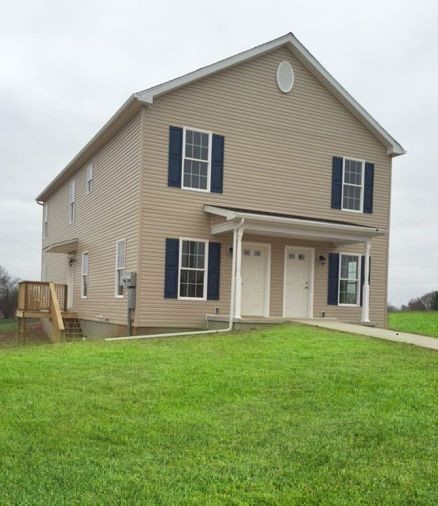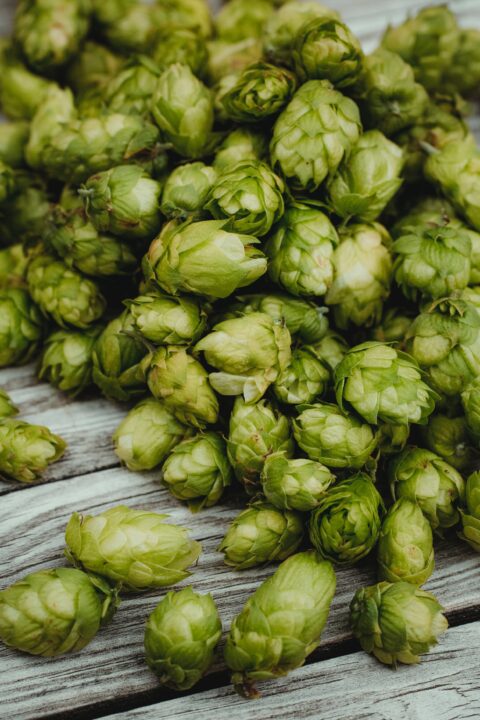Pennsylvania State Horticulture Association And Apple Growers Fund Housing For Graduate Students

This modular duplex at Penn State University’s Fruit Research and Extension Center in Biglerville, PA, was funded through donations to a capital campaign from local fruit growers in Pennsylvania and Maryland. (Photo credit: Penn State University)
Often overlooked in the big picture of research, graduate student housing is a very vital resource for those looking to embark on a career in the specialty crop industry.
So when it was time to update the outdated housing trailers at Penn State University’s Fruit Research and Extension Center (FREC) at Biglerville, PA, representatives from FREC and the State Horticultural Association of Pennsylvania (SHAP) met to talk about how this could be accomplished. In the past 35 years the housing trailers had been used by 32 graduate students, seven postdoctoral scholars, and two visiting scientists.
“We’re at a point when we need to train new folks to work in the fruit industry both in plant protection and in horticulture,” says Jim Schupp, current FREC Director and Professor of Pomology at Penn State University.
Phil Baugher, President of Adams County Nursery in Aspers, PA, and Chairman of the capital fund committee says the need was very evident.
“Graduate Housing was identified by the faculty members at FREC to be a top priority,” he says.
Schupp and Penn State University representatives approached SHAP to see if they could help with the funding of new housing. The SHAP endowment committee agreed to front the funds for housing and the grower group formed a new capital campaign committee to raise funds to replace the donation from the endowment.
John Rice, vice president of Rice Fruit Company in Gardners, PA, says it’s important for the industry to step up when necessary and keep fruit research going at university centers. Rice was named the first Apple of the YearSM by American Fruit Grower® magazine.
The SHAP endowment committee agreed to front the funds so the house could be constructed quickly.
“The endowment would commit to an investment of $252,000 on a house that would be gifted to Penn State University and the organization would conduct the capital campaign to replenish the funding of the amount of the house,” Baugher says.
The capital campaign exceeded its goal of $252,000, which donations came primarily from local fruit growers in Pennsylvania and Maryland.
“We had somewhere around 75 industry partners contribute,” Schupp says. “[There were] contributions all across the board, it was large and small and all points in between. The faculty members at FREC are thankful beyond words.”
Ground was broken in August 2015, and by the beginning of 2016 it was complete. The new housing is a modular duplex built in Pennsylvania and can accommodate up to eight people. Utilities were hooked up by the holidays. The building is located on the edge of the FREC facility where it overlooks Biglerville and the South Mountain fruit belt. Schupp says they’re going to charge enough rent to maintain the facilities.
“It makes me smile every time I see it,” Schupp says. “Our students will have a place where they can rest and have a meal, do some laundry, and they can walk to work. Because of the fruit growers’ vision and generous support, we’re providing them with short-term, convenient, safe, affordable housing.”
A ribbon-cutting ceremony was held in January and four current and former graduate students were the honorary ribbon cutters. The ribbon cutting was also a fitting day because Sarah Bardsley Capasso, a post-doctorate student who recently completed her Ph.D. in plant pathology, moved in that evening.
“I am very proud of the support that came from so many parts of our local grower community, who recognize the importance of research in general and, in particular, the great value of the research that is being done at the Penn State Fruit Research and Extension Center,” Rice says.









